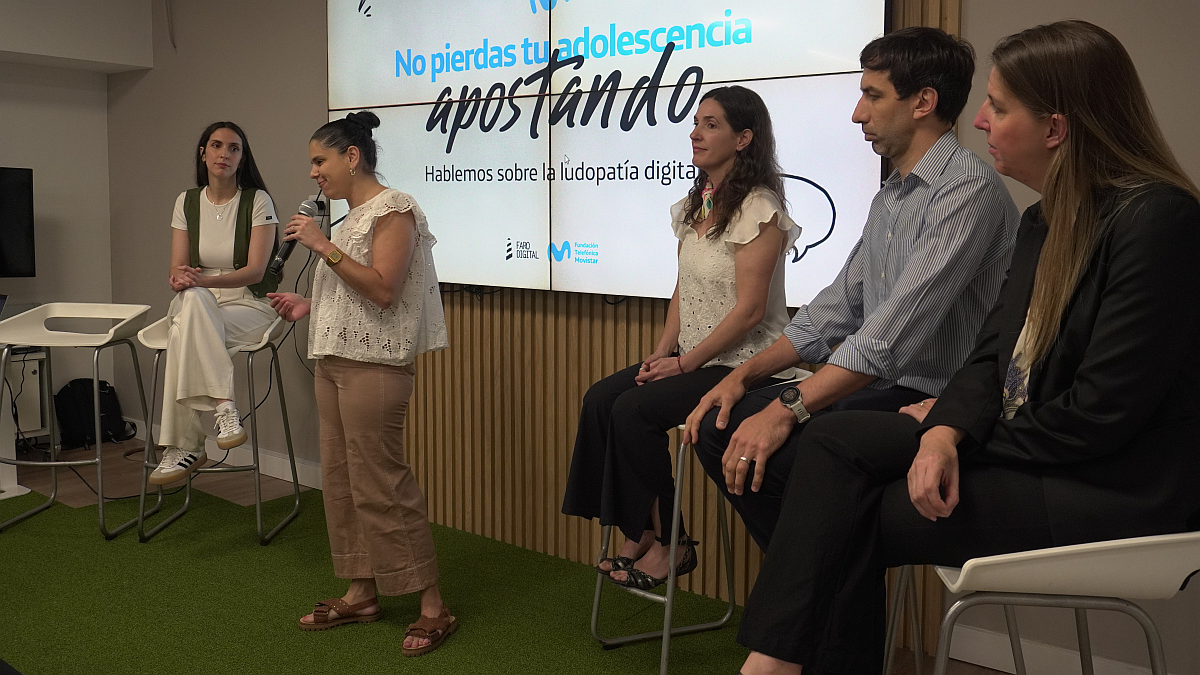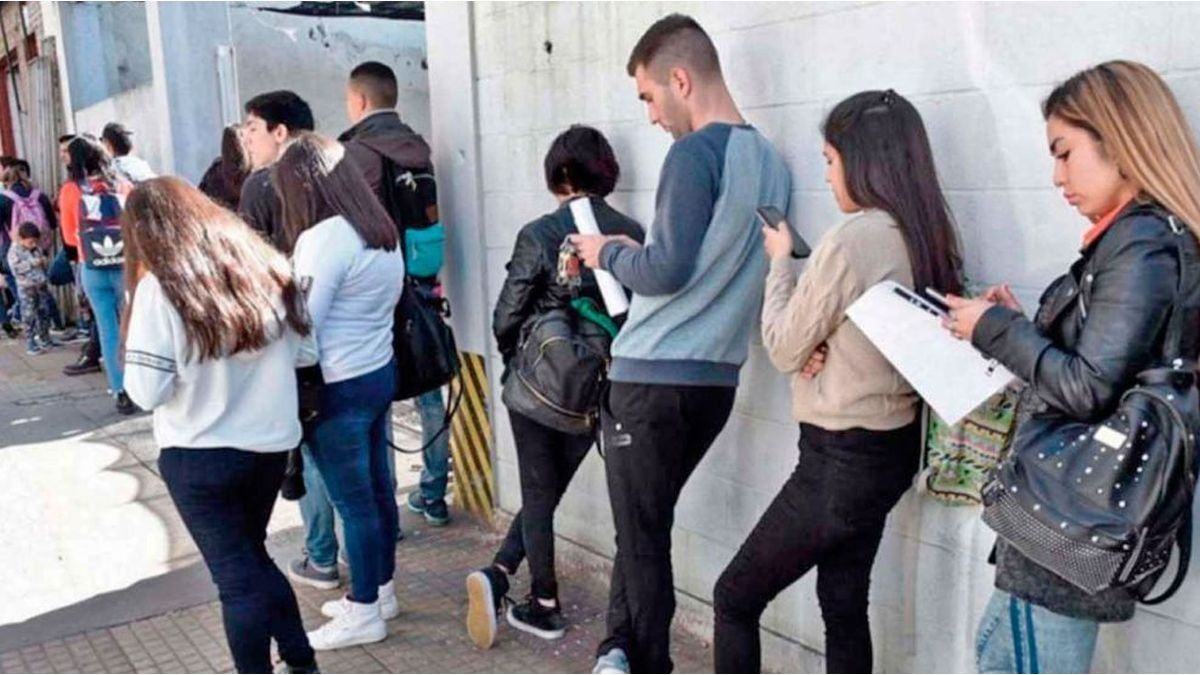Movistaras part of its commitment to the responsible use of technology, presents its new campaign “Adolescent digital gambling”.
The company seeks to raise awareness and prevent different problems related to the digital world, aligning with its history of addressing different challenges of the digital era, such as grooming, cyberbullying, sharenting, responsible use of cell phones while drivingamong many others.
On this occasion they focused on the “Adolescent digital gambling”under the motto “Don’t waste your adolescence gambling”with the aim of addressing the growing problem of digital gambling disorder in adolescents and aims to raise awareness among young people and their families about the risks associated with online bettingpromoting reflection and encouraging safe and responsible use of technology.
image.png
The campaign had the support and participation of the NGO Faro Digital, strategic ally in the company, who co-created educational guides and workshops for young people and adults to help them understand and prevent the risks of digital gambling.
The NGO recently received recognition from the Legislature of the city of Buenos Aires, which declared them to be of social and educational interest.
Data on online betting among young Argentines
Today 1 in 4 adolescents has done at least one bet onlinea worrying trend driven by the growing supply of betting sites and constant exposure to advertisements that promote them on different platforms, such as social networks. But there is more information available.
According to data from the Report of the Ombudsman of Buenos Aires, extracted from the Ombudsman Portal, it is known that:
- 73% discovered online betting platforms through their close circle.
- 48% bet from home.
- 27% found out about them through advertising and influencers.
- 10% do it from school.
- 67% of bets are in order to get quick money.
- 13% of regular gamblers find it very difficult to stop, regardless of whether they are winning or losing.
In dialogue with this medium, the experts from Digital Lighthouse, who will give talks starting in February in public and private schools throughout the country on this topic, also indicated:
- It crosses all socioeconomic sectors (upper, middle and lower classes)
- The largest number of cases are detected in young people between 15 and 17 years old, but there are cases as young as 12.
- “In every classroom we enter there is a student who bets”
- In CABA, according to the Ombudsman’s Office, 1 in 4 kids bet, while Unicef data indicates that it is 7 out of 10.
- Many bet with their own virtual wallets, which they can have from the age of 13. But they also do it through “cajeros”, who are people who channel the bet, generally illegally.
- The largest number of young people place sports bets, but they also use card games and slots (video games to overcome stages or levels).
- Today the 3 problems in school classrooms are online gambling, violence and cyberbullying, with the creation of images with Artificial Intelligence.
The campaign includes a spot designed to reflect this problem in a close and real way and a landing page where interested parties can access key information and educational guides developed by Digital Lighthouse.
Almond OgdonIntegrated Communications Manager of Movistarhighlighted that the company’s mission “is to make the world more human, connecting people’s lives” and clarified that this “purpose is present more than ever in our awareness campaigns, which seek to generate a positive impact on society. “This time we address an issue that is growing at a worrying speed in young people and adolescents, digital gambling.”
“With the ‘Don’t waste your adolescence gambling’ campaign, we want to invite young people to fully enjoy their adolescence, and adults to guide new generations in the safe and responsible use of technology,” Ogdon added.
image.png

Schroder Miracleseducation coordinator Digital Lighthouse, revealed that they have observed a growth in the practice of online betting among teenagers since last year. “After a year of holding meetings especially with adolescents and several surveys, we can see beyond the tip of the iceberg. This campaign brings to the table the importance of talking about the digital practices of boys and girls with them,” he said during a meeting held in the modern Telefónica offices in downtown Buenos Aires.
image.png

Milagros Schroder, education coordinator at Faro Digital.
“Pathful gambling is not new as a social problem,” Schroder continued, “and we find ourselves renewing concern about the echo chamber that is explored in virtual environments.”
“We celebrate this alliance with Movistar that allows us to take charge and build a network of care for adolescents, a bridge that connects generations and that encourages us to put questions into practices that are becoming natural and can be very harmful, especially for boys and girls,” the specialist stressed during the presentation in which he participated Scope.
Antonella Tomichead of sustainability at Telefónica Movistar, said: “Sustainability is key to our business and our Responsible Business (ESG) policy. At Telefónica we work to build a greener future, promote social prosperity based on digitalization and lead by example, always promoting trust. This is why we are very excited to be able to announce this initiative, with which we reaffirm our commitment to Digital Citizenship, taking advantage of connectivity to raise awareness about the responsible use of technology and provide value in the long term and in a sustainable way, taking into account takes into account the needs of all our interest groups.”
image.png

The Movistar Telefónica Foundation has already launched different free initiatives on the good use of technologies, which have exceeded 4.7 million beneficiaries and reached more than 120 educational institutions throughout the country.
Together, the talk “Virtual Protagonists: Notes for living together in the digital world” and the educational series “FundaMeMental Stories”, which seek to raise awareness among teachers, students, families and communities linked to CSOs about the risks associated with the use of technology, They encourage reflection on the challenges of the digital environment and offer tools to build positive experiences, promoting safe and responsible practices on the Internet, platforms and social networks.
Source: Ambito




